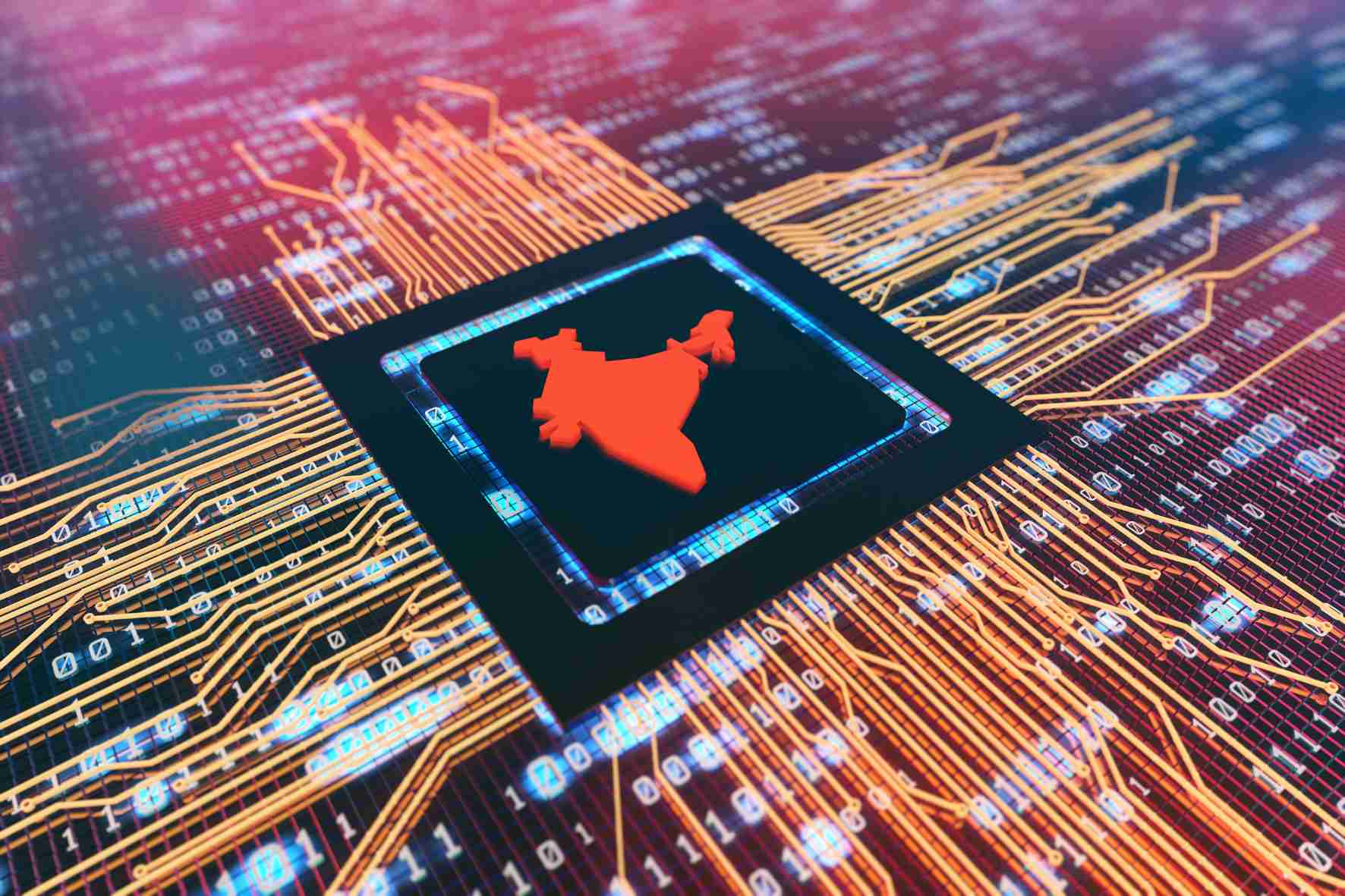In this digital era, India is undergoing a significant transformation towards full digitisation in various sectors, particularly healthcare. This initiative aims to enhance accessibility and equity among the diverse population while promoting environmentally friendly practices.
By empowering society digitally, digital healthcare in India is fostering a knowledge-based economy focused on health, adhering to the principle that “Health is Wealth.” Improved digital healthcare solutions are ensuring better access to quality services, ultimately benefiting the nation’s overall well-being.
Table of Contents
The Blueprint for Digital Transformation in Healthcare in India

To successfully implement and transition to digital healthcare in India, several fundamental requirements must be met.
Reliable Internet Connectivity:
Especially in underserved areas, reliable internet forms the backbone of any digital healthcare initiative, ensuring all populations have access to essential services.
Data Security and Privacy:
Strong policies and regulations must safeguard patient data stored in the cloud, addressing concerns about privacy and security.

Digital Literacy and Training:
Comprehensive training programs are essential for both service providers and users to understand the functionalities and benefits of digital services.
Quality and Regular Updates:
Technologies and systems must undergo regular assessments and updates to adapt to the evolving healthcare landscape and maintain high care standards.
India’s Healthcare Before Digital Transformation

Before the introduction of digital healthcare in India, there was a significant gap in healthcare service delivery.
Many states also grapple with disparities in healthcare service accessibility between rural and urban areas, with rural areas facing more pronounced challenges.
A study conducted in 2017 concluded that India’s healthcare sector is struggling with both availability and accessibility of services.
The Evolution of Digital Healthcare in India

The three key pillars of this digital vision are robust digital infrastructure, accessible government services, and citizen empowerment.
In India, the healthcare sector is undergoing the most rapid digital transformation. This journey began approximately 15 years ago, starting in 2008 with the National Rural Health Mission (NRHM), which developed its own Information Technology system.
In 2011, the National Health Systems Resource Centre (NHSRC) published the Public Health IT Study Report. The concept note for the National eHealth Authority followed in 2015, and in 2017, the National Health Policy proposed the integration of digital health technologies into the healthcare system.
What Does Digital Healthcare in India Look Like Today?

The significant journey of digital healthcare in India began with the introduction of the Aarogya Setu application in April 2020.
This was followed by the launch of the CoWIN application in January 2021, aimed at closely tracking the timely vaccination of the COVID-19 population.
In September 2021, the government initiated a comprehensive digital strategy by launching the Ayushman Bharat Digital Mission, which included the Ayushman application.
In addition to these major applications, numerous other tools have been introduced to address different aspects of the healthcare system, such as e-Sanjeevani, e-Hospital, and many more.
While some of the applications cater primarily to service receivers, various applications have also been developed for healthcare providers at different levels.
Many healthcare professionals manage multiple digital applications simultaneously. For instance, an Auxiliary Nurse Midwife (ANM) at a government healthcare center must maintain several applications, including ANM app, RCH, ANMOL, and others. Furthermore, these digital applications can vary by state, resulting in discrepancies in the total number of applications that need to be managed.
The Digital Healthcare In India Sphere: Addressing Intricacies and Challenges

The proliferation of multiple digital applications aimed at Digital Healthcare in India transformation has significantly complicated both service delivery and accessibility.

Healthcare workers stationed at the healthcare center face challenges in managing multiple applications, which ultimately impacts their ability to provide effective services to their communities. Compounding this issue is the confusion among the public regarding which application to use for accessing services.
For example, during the COVID-19 vaccination drive, many individuals were bewildered by the registration process between the CoWIN and Arogya Setu applications. This confusion led to missed vaccinations and incomplete immunizations, with some people failing to receive their second dose due to errors in registration or being wrongly registered.
The challenges don’t end there. The use of multiple applications often results in the same data being uploaded across different platforms, leading to issues such as data overlap, duplication, and inefficient use of digital storage.
This not only hampers the integrity of data but also contributes to failures in data entry, slow server responses, and repeated entry errors.
Frustrations arise for both the public and healthcare workers due to inefficiencies in digital systems. Healthcare professionals often face the burden of re-entering the same information multiple times, increasing their workload and compromising the quality of care they provide.
Meanwhile, patients become exasperated by the need to repeatedly navigate digital registration and updates. This cycle of redundancy not only hinders service delivery but also diminishes the overall healthcare experience.
Infrastructure and Knowledge Gap in Revolutionising Digital Healthcare In India

Implementing digital healthcare initiatives in India faces several significant barriers, primarily centered around accessibility. As of early 2024, around 47.6% of the population remains offline, with only 52.4% having access to reliable internet. Additionally, 70% experience poor or no internet access, compounded by the affordability of necessary digital devices, which hinders access to digital services.
Furthermore, digital literacy poses a considerable challenge in India, with only 38% of households being digitally literate, and this drops to a mere 24% in rural areas. This lack of skills can hamper individuals’ ability to access digital healthcare services, worsening the existing inequalities in the healthcare sector.
Can India’s Data Security Stand Strong Against Escalating Threats?
India’s digital healthcare system utilizes data encryption technology to protect sensitive information. A multi-factor authentication system restricts data access to authorized personnel and maintains a digital access trail.
Additionally, the Digital Personal Data Protection Act (DPDP Act), introduced in 2023, aims to enhance data protection by enforcing principles like consent, purpose limitation, and data minimization.
Despite these protective measures, current initiatives may fall short in managing the vast amounts of data generated in India.
Historical examples from developed countries such as the UK and USA underscore this concern, as these nations have faced significant data breaches in their healthcare sectors over the past decade, resulting in the loss of millions of health records to cyberattacks—even with advanced data security technologies in place.
This situation raises critical questions about the strength of India’s data protection framework, especially given the insufficient digital infrastructure amid rising cyber threats.
A 2023 study revealed that India’s digital healthcare system lacks the necessary protections to handle the vast amounts of data generated, and current digital laws do not comprehensively address all aspects of healthcare.
Conclusion

While the transformative steps towards digital healthcare in India aims to reduce inequality, improve accessibility, and enhance care quality, significant gaps in digital infrastructure and literacy persist.
Over 50% of the population still lacks access to the Ayushman Bharat Health Account (ABHA) digital ID, which is essential for navigating the digital healthcare landscape. Consequently, those who previously struggled with healthcare access are now facing new challenges related to the accessibility of digital services.
This highlights the need of ensuring adequate infrastructure, accessibility, and affordability before implementing rapid changes in the healthcare sector. Without these foundational elements, India risks worsening healthcare inequalities and compromising care quality.
Moving forward, it is crucial to address these gaps to create an inclusive healthcare system that effectively leverages technology for all, ultimately achieving the goal of “Health for All.”
Join the Conversation
We’d love to hear your thoughts on digital healthcare in India. What challenges do you think need the most urgent attention? Have you experienced the benefits or drawbacks of these initiatives firsthand? Share your insights and experiences in the comments below. Let’s work together to envision a healthier, more connected future!





5 Comments
Digital Health and Digital Healthcare are unavoidable and these transformation will continue, but India might require to focus on easy UI, digital literacy, a sustainable infrastructure and system can can support it. Laws/Act cannot confirm data security/privacy but technological advancements and utilisation, but the same technology may cause threat as well. So, discussion these will continue, but it is good that at least we have started walking. Nevertheless, governance and policy execution will definitely need to work more on gaps even after some noticable achievements.
Thank you for your valuable insights! We recognise that the ongoing transformation toward digital health is indeed necessary, and we share the belief that prioritising user-friendly interfaces, enhancing digital literacy, and establishing sustainable infrastructure are critical components for effective implementation. Continued dialogue and proactive governance will be essential in addressing existing gaps and ensuring that the benefits of digital healthcare are equitably realised. It is indeed encouraging to witness the progress being made in this important domain.
India’s digital healthcare transformation holds great promise for improving access and equity, but its success depends on overcoming significant challenges related to infrastructure, digital literacy, and data security.
Thank you for your comment! Your observations highlight important hurdles that must be addressed for effective digital healthcare implementation.